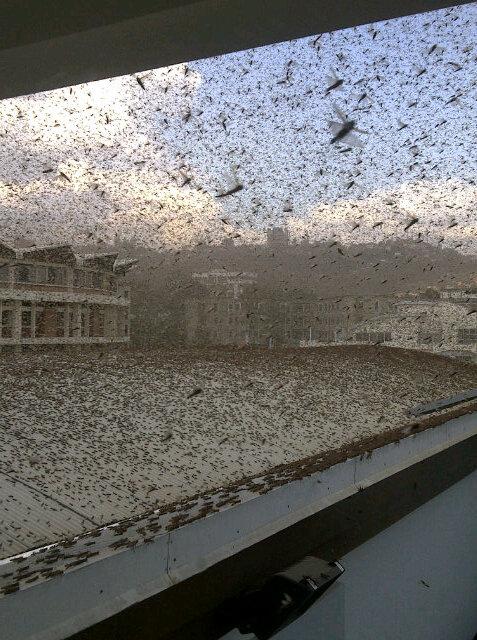Billions of locusts swarmed Madagascar’s capital Antananarivo on Thursday, prompting residents and tourists to share photographs of the sudden insect invasion on Twitter, while experts worried about the effect on the country’s food supply.
In the past five years, swarms of giant locusts have regularly swept in over the island nation off Africa’s southeastern coast, devastating crops and other food supplies within just a few hours.
The Food and Agriculture Organisation (FAO) of the United Nations estimates that the ongoing locust plague in Madagascar threatens the livelihoods of some 13 million people, of which nine million earn their living from agriculture.
Last year, the UN agency launched a three-year emergency program to try and control the locust infestations through aerial campaigns to protect crops. Out of the $44 million (€33 million) in donations the FAO has called for to fund the program, it has so far only received $28.2 million, meaning the funding gap exceeds the $15 million needed to implement two more campaigns in 2014/15 and in 2015/16.
Since the spraying operations started in November 2013, locust populations on 1.2 million hectares of land have been controlled.
In an interview with BBC Focus on Africa last year, FAO locust control expert Annie Monard said: “The last one (plague) was in the 1950’s and it had a duration of 17 years so if nothing is done it can last for five to 10 years, depending on the conditions.”
Here is a selection of photographs that were published Thursday on Twitter:






 France 24
France 24
First crows eating the Pope’s doves, then Ebola/plague outbreaks, and now swarms of locusts. I think God is sending his plagues on us.